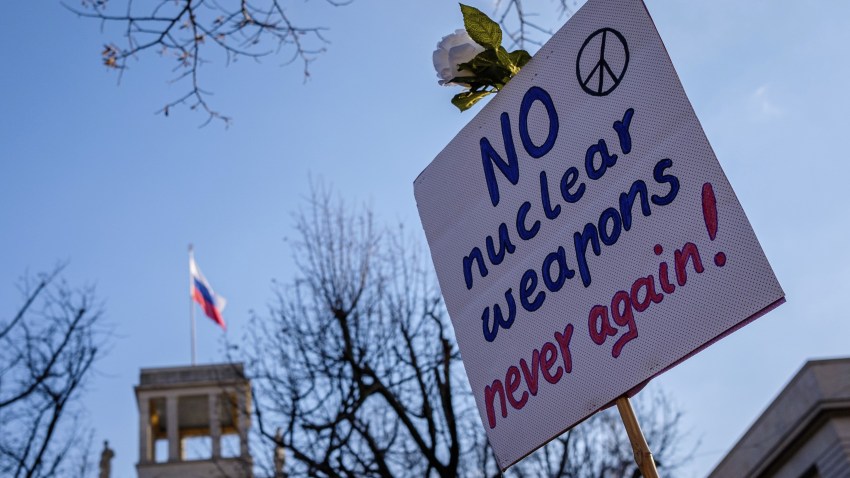Last week, at the International Studies Association’s annual conference in San Francisco, nuclear security expert Michael Smetana of the Peace Research Center in Prague brought together leading scholars studying the strength of the “nuclear taboo” over the past years for a roundtable discussion. The topic: how much the nuclear taboo had been weakened by the war in Ukraine and Russia’s nuclear brinksmanship.
As the program noted, “Moscow has accompanied its use of brute force with more or less explicit nuclear threats to deter Western military involvement.” The speakers were tasked with “connecting the claims about the alleged erosion of the ‘nuclear taboo’ with the broader logic of the global nuclear order and its contemporary dynamics.”
While the answer was as varied as you might expect from a panel of social scientists, the scholars agreed on one thing: Threats themselves, whether from Putin or anyone else, are not a great barometer of any change in the nuclear taboo. For one thing, as Lauren Sukin of the London School of Economics pointed out, the nuclear taboo is about non-use, so mere nuclear threats can’t be considered a violation. Rather, they should be viewed as a form of signaling. Moreover, as Rebecca Gibbons of the Center for Strategic and International Studies put it, nuclear deterrence theory has always been based on threats, in the form of the principle of mutually assured destruction and the nuclear arrangements that support it.

